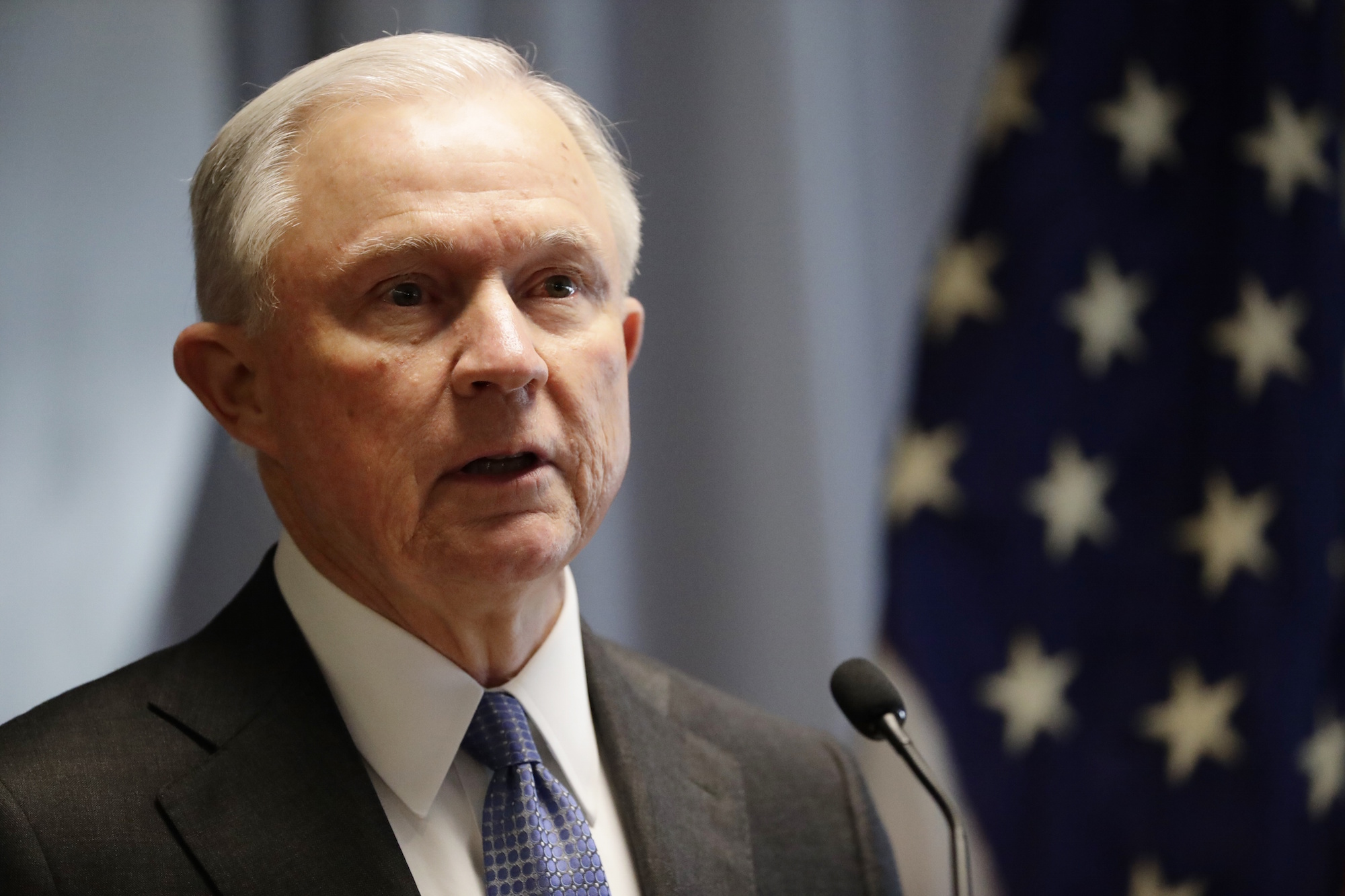Attorney General Jeff Sessions drew backlash from an array of liberal and conservative critics on Friday, after he rescinded a key Obama-era policy and ordered federal prosecutors to begin charging suspects with the “most serious, readily provable” offenses that carry the harshest sentences.
Under the Obama administration, federal prosecutors had been instructed to pursue the toughest penalties only for “serious, high-level” criminals, rather than low-level drug offenders.
“The policy announced today is not tough on crime. It is dumb on crime,” former Attorney General Eric Holder said in a statement on Friday. He added that Sessions’ policy was an “unwise and ill-informed decision,” and that Congress should enact criminal justice reforms to reverse the move.
“It is an ideologically motivated, cookie-cutter approach that has only been proven to generate unfairly long sentences that are often applied indiscriminately and do little to achieve long-term public safety,” Holder said. “Abandoning this evidence-based progress and turning back the clock to a discredited, emotionally-motivated, ideological policy also threatens the financial stability of the federal criminal justice system.”
Turning back the clock to a discredited, emotionally-motivated, ideological policy also threatens the financial stability of the federal criminal justice system.
Reforming drug sentencing and mandatory minimums have increasingly become a bipartisan effort in recent years, as collateral damage from the War on Drugs has included an incarcerated population of more than 2 million, overburdened prison systems, heavy costs to taxpayers, and persistent obstacles to ex-offenders re-entering society.
Yet Sessions, in a memo to federal prosecutors, defended tough drug sentencing as "moral and just," arguing that it provides consistency within the criminal justice system.
In a speech Friday morning in Washington, DC to the Sergeants Benevolent Association of New York City, Sessions cited the heroin epidemic and rising rates of violent crime and murders in large cities as reasons for cracking down further on drug prosecutions.
"The price of heroin is down, the availability is up and the purity is up," Sessions said. "We intend to reverse that trend. So we are returning to the enforcement of the law as passed by Congress - plain and simple."
"If you are a drug trafficker, we will not look the other way. We will not be willfully blind to your conduct."
Bipartisan backlash
But a growing body of voices have already spoken out against harsh sentencing for such offenses. Republican Sen. Rand Paul of Kentucky decried Sessions' policy on Friday, saying mandatory minimums have "unfairly and disproportionately" targeted minorities for years.
"Attorney General Sessions' new policy will accentuate that injustice," Paul said in a statement. "Instead, we should treat our nation's drug epidemic as a health crisis and less as a 'lock 'em up and throw away the key' problem."

Prosecutors and law enforcement leaders also reacted with dismay to Sessions' memo, including Joyce Vance, former US Attorney for the Northern District of Alabama. She tweeted that tough-on-crime sentencing policies have not only proven ineffective in reducing crime - they have increased it by burdening ex-offenders upon their release with fines and a lack of job opportunities.
"Smart on crime policies reduced crime and costs and helped people find jobs and become law abiding, tax paying citizens," Vance tweeted. "Tough on crime policies inevitably impact poor and minority communities the most, due in large part to unaddressed implicit bias issues."
Law Enforcement Leaders to Reduce Crime and Incarceration, an organization of nearly 200 current and former police chiefs, sheriffs, and prosecutors, called the move an "ineffective way to protect public safety."
"Decades of experience shows we cannot arrest and incarcerate our way out of America's drug problem," Brett Tolman, the former US Attorney of Colorado, said in a statement.
"Instead, we must direct resources to treatment and to specifically combatting violent crime. This will help law enforcement do our jobs better."

